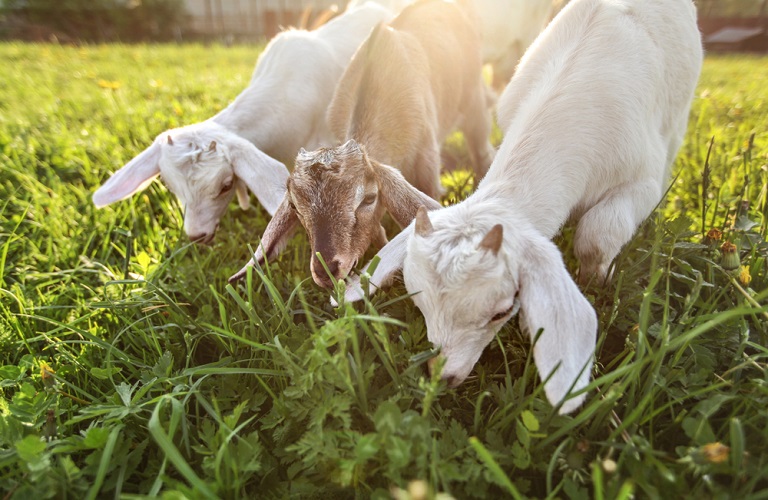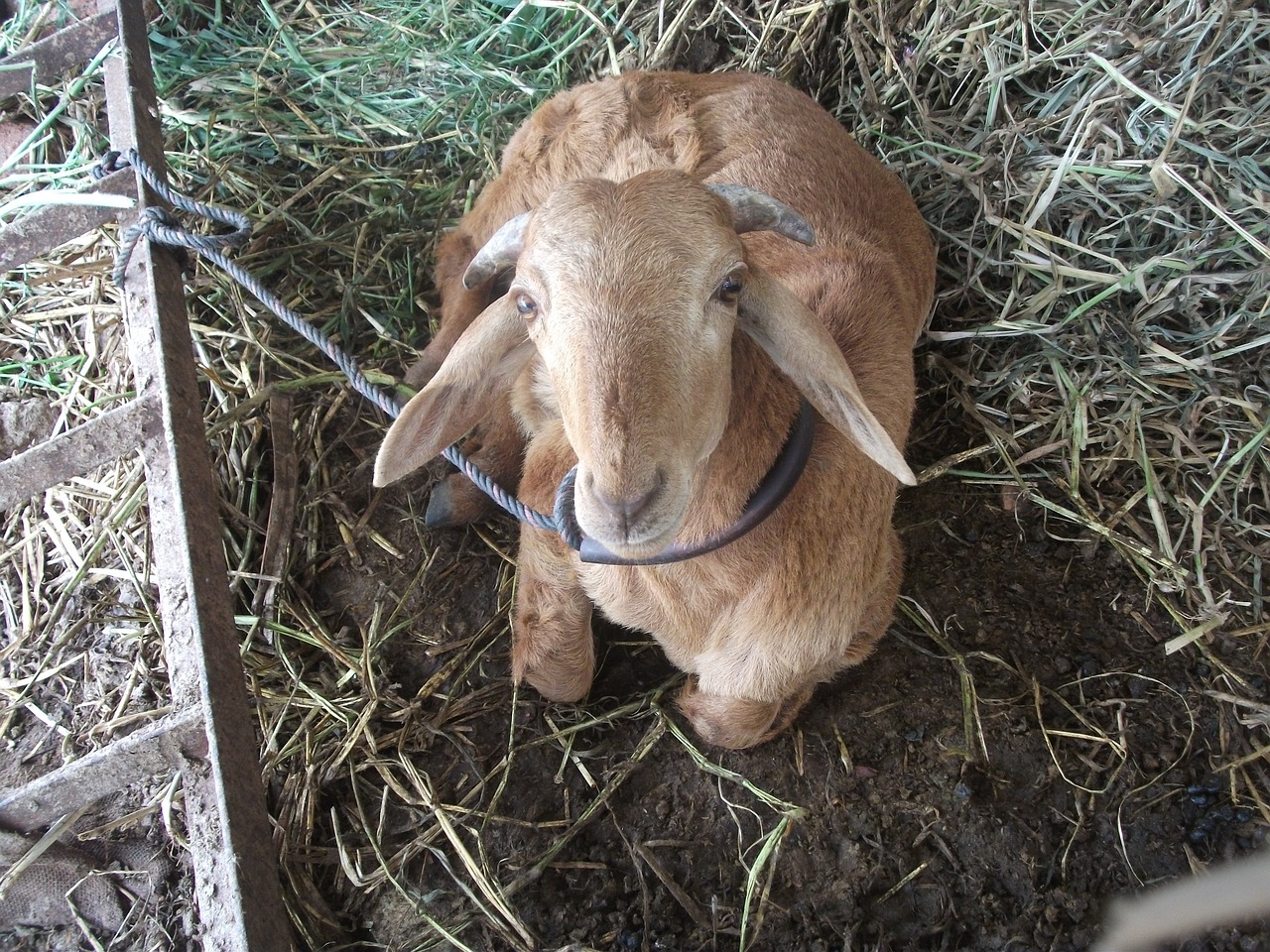The spread of sheep-and-goat plague has sparked concern about the devastating effects on livestock, endangering both the survival of livestock farmers and the national economy.
For now, the market for meat, milk and dairy products does not seem to be affected in the long term. However, the representatives of the breeders warn that if the controls are not intensified then the phenomena of profiteering by the astute will intensify, with the final victim being the consumer.
“Always in such cases some people find the opportunity to speculate and apparently they are already doing it. Measures and controls are needed so that there is no problem in the market and the consumer pays for it again”, the president of ETHEAS and president of the Agricultural Dairy Cooperative of Kalavryta, Pavlos Satolias, emphasizes to OT.
However, the dimensions that the zoonosis has taken since the day the first case was detected on July 11 in Thessaly and the spread of the virus, with outbreaks from Komotini to Crete, do not make anyone complacent. Already, according to official data, by August 1, cases had been identified in 35 farms throughout Greece, with the animals that have been killed so far amounting to 13,000, with this number expected to increase.
“Some have committed illegalities,” the breeders’ representatives meaningfully tell OT, stressing that illegal imports undermine livestock farming and the national economy. That is why they are asking for the exemplary punishment of those responsible and also for an investigation into why the prescribed procedures were not followed.
Intensification of controls to put a stop to the phenomena of profiteering, the breeders request
At this time, the priority for them is to take all those actions to stop the dispersal even in August, while as they say, the support from the state should be immediate in order to be able to rebuild their herds. “Otherwise we will be talking about a draw”, they point out to OT.
Checks so that there is no problem in the market
The assessment that there will be no serious effects on animal husbandry, as long as the situation is contained soon, was expressed to OT by Mr. Satolias: “We believe that the market for meat and milk and dairy products will not be affected in the long term because the participation is very small – at least from what it seems so far – of infected animals”.
Nevertheless, he rings the bell for the competent agencies to intensify the controls as he typically says “always in such cases some people find the opportunity to make a profit and apparently they are already doing so. Measures and controls are needed so that there is no problem in the market and the consumer pays for it again.”
The course for livestock farming the next day is still difficult to assess, as the vice-president of the Hellenic Livestock Association (SEK) Dimitris Moschos tells OT as he notes “it will depend on how far the disease will spread, how many thousands of animals we will lose, because apparently the cases are rising due to the distribution of animals that has been done throughout Greece. From one day to the next we have developments and we see cases in different parts of the country”.
However, questions arise, as Mr. Moschos points out, about the origin of the lambs that will be on the market for the needs of August 15: “If for August 15, the measures that provide that we livestock farmers cannot slaughter animals, lambs that will be released on the Greek market, where will they be from? They will be carcasses that will have come from Romania, as imports from this country continue. Romania sends to Greece from the clean areas. But we here, from the clean areas such as Western Macedonia, cannot slaughter to send to the butchers. What logic is there here?’
“This is not a phenomenon brought by the sky like rain or snow, it is something that came from a bad management, from procedures that were not followed and that makes us angry”
To put out the fire of the plague of sheep and goats
Anger and fear are rife among the Thessalian herdsmen, who have already been dealt back-to-back blows by the disasters of Daniel and Elias, and now the plague is at their door.
“This is not a phenomenon brought by the sky like rain or snow, it is something that came from a bad management, from procedures that were not followed and this makes us angry”, the president of the Federation of Cattle Breeders of Thessaly Dimitris Baloukas tells OT, stressing that as long as “the fire of the plague burns we are all in danger”.
Conveying to us the situation that the already affected livestock farmers of Thessaly have found themselves in, he said: “Especially here in Thessaly we are so afflicted that now there is a question of psychology. How much can a breeder afford? There is a case of a fellow breeder in Falani, where he lost 1,000 animals 10 months ago in the floods, all winter he had no income and then after he was charged and bought animals again, they were found with plague”.

However, at this moment, the priority of the breeders not only of Thessaly, but of the entire country is to locate all the outbreaks, to stop the spread so that other herds are not lost. “We the breeders, although we are not responsible for this situation, since we found ourselves in this difficult road we have to defend ourselves. To follow all the necessary measures in our units and by protecting our herds from the virus, then we help to fight and eradicate the zoonosis, so that this nightmare can stop as soon as possible”.
The next step is the appeal to justice of those who committed illegal acts
Violators should be punished exemplary
“By August we must clean the country from the plague. To trace all cases and isolate them. In this direction, all the production lines, the Cooperatives, the breeders and the processing units, are following all the necessary measures”, Pavlos Satolias, president of ETHEAS and president of the Agricultural Dairy Cooperative of Kalavryta, emphasizes to OT.
The next step for the president of ETHEAS is to investigate the situation, to check which procedures were not followed, resulting in animals with plague being imported into the country. “It is clear that there have been irregularities, falsifications and illegal traders, who apparently did not follow all the procedures, which are foreseen, as a result of which the zoonotic disease came and spread in our country. Changes are needed in the legislative framework, which must be made stricter and offenders punished exemplary”, he adds.
In fact, when the situation is checked, Mr. Satolias says that “we will take action against everyone responsible so that those responsible pay so that we do not have a repetition of this phenomenon”.

For his part, the president of the Federation of Cattle Breeders of Thessaly calls for the responsibilities to be assigned, pointing out to OT that in this case “we are not talking about a case of fraud, but about a complete disaster. The history we are living is essentially a showdown and we must all be relentless so that responsibilities are assigned.”
Compensation with amounts that will meet real needs
“Support to rebuild our herds”
Real compensation to enable affected farmers to rebuild their herds is the next step after the eradication of the zoonotic disease and accountability.
“With compensation of 100 euros and 150 euros for a ewe, none of these people will make animals again. Livestock cannot be rebuilt with these amounts. These are prices that do not correspond to reality”, Mr. Baloukas tells OT.
He also reminds that the Greek sheep and goat breeding is a dynamic sector which contributes to the national economy. “As much as we livestock farmers need our work, the local economy needs us just as much. That is why we are asking for real support from the state”, notes Mr. Baloukas.
SOURCE: ot.gr
#Plague #day #livestock #danger #profiteering

